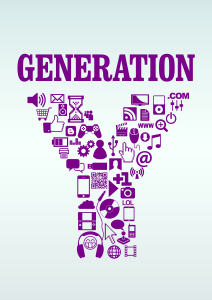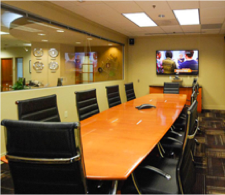 Generation Y, also known as Millennials, are loosely defined as those born between the early 1980s and the early 2000s. By 2020 Millennials are set to make up more than 40% of the U.S. workforce. As that number grows, the workforce is being shaped and redefined by this “plugged-in” generation.
Generation Y, also known as Millennials, are loosely defined as those born between the early 1980s and the early 2000s. By 2020 Millennials are set to make up more than 40% of the U.S. workforce. As that number grows, the workforce is being shaped and redefined by this “plugged-in” generation.
Generation Y grew up with technology rapidly changing and constantly at their fingertips. As more and more Millennials come of age the workforce is beginning to slowly change and adapt to this influx of technologically-savvy and outside-of-the-box thinkers.
Collaboration vs. The Corner Office
One of the ways that Millennials are drastically changing the workplace is in their disregard, and even disdain for, the corner office. Millennials are not as interested in “climbing the corporate ladder.” They want to collaborate with their coworkers and create meaningful contributions in every aspect of their lives. This is particularly true in the workforce.
Growing up constantly connected through social media means that, contrary to popular belief, Millennials are experts at collaboration and prefer it to solitary cubicle work. The online collaboration tools such as Basecamp and Dropbox are only the tip of the iceberg when it comes to collaboration in the workforce. Any business that doesn’t take these changes seriously will definitely be left behind as more and more Millennials join the workforce.
Work as an Activity not a Place
Another way that Millennials are changing the workforce is in the way they define “work.” To Millennials “work” is more often considered an activity as opposed to a place. Since Generation Y is the first generation to truly “grow up” with the internet at their fingertips the traditional “office” is becoming less and less important. Millennials can work from anywhere they have access to the internet such as virtual offices, their living room, or the local coffee shop.
Since they are aware that “work” is not something that must be tied down to one building or location, Millennials become increasingly restless when required to clock in at a set place for the typical 9-5 workday. This is why virtual offices and online collaboration tools are becoming extremely important to successful and forward-thinking business models. Successful companies must adapt to the rapidly changing workforce or be quickly left behind.
Generation Y is only going to saturate more and more of the workforce in the coming years. It’s important for businesses that wish to stay current to adapt and redefine themselves in order to stay ahead of the curve and succeed.




